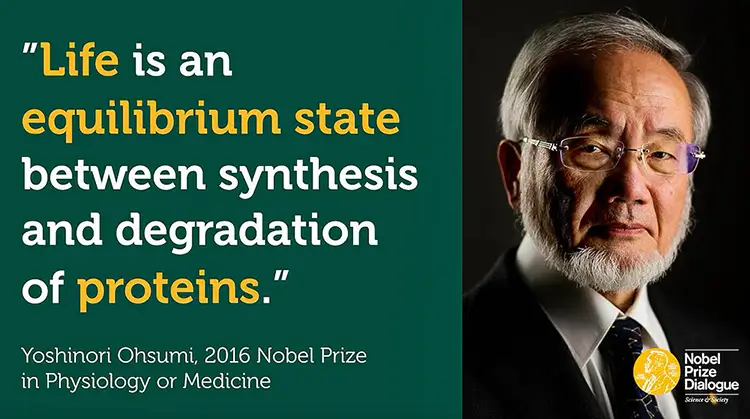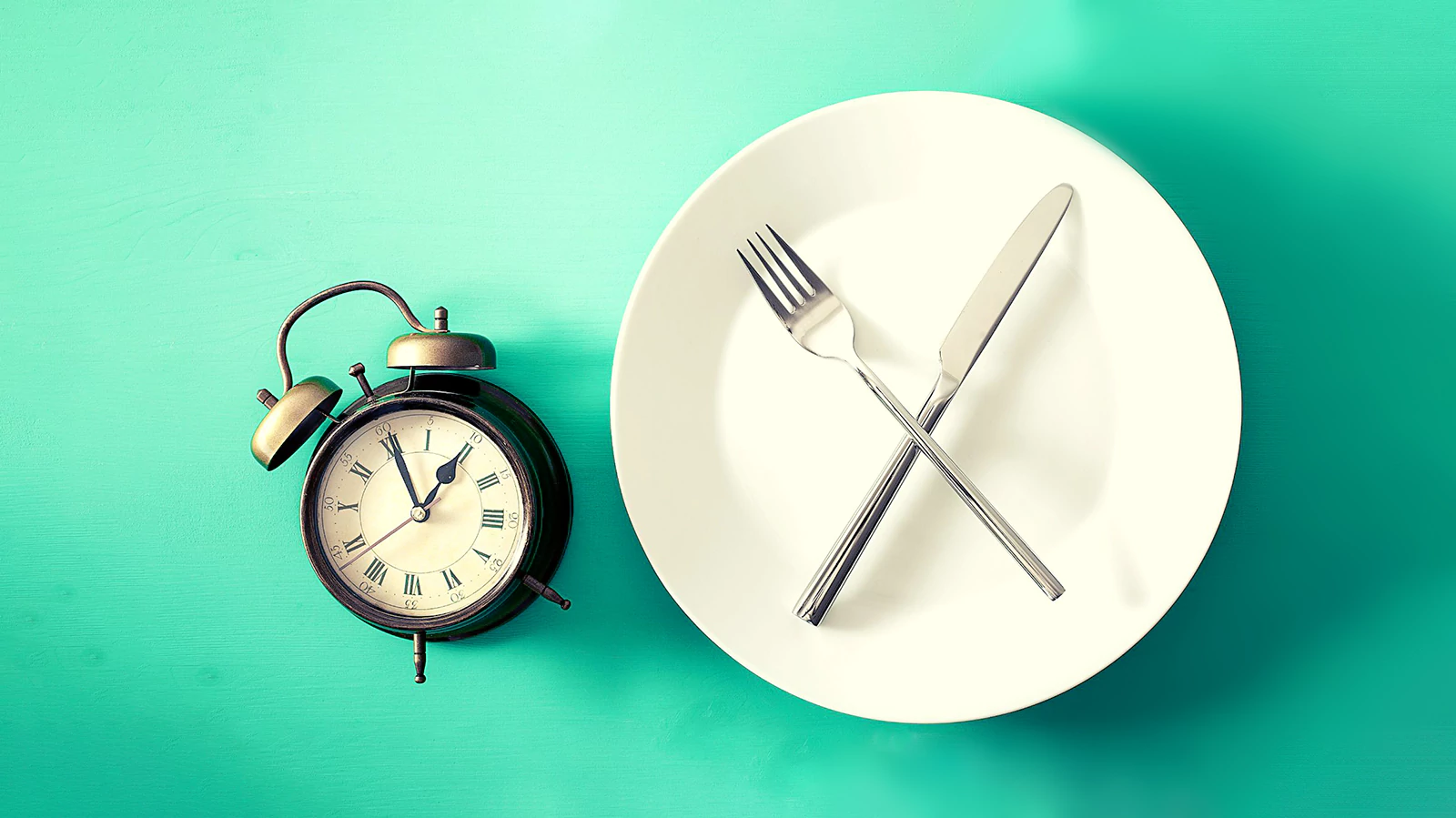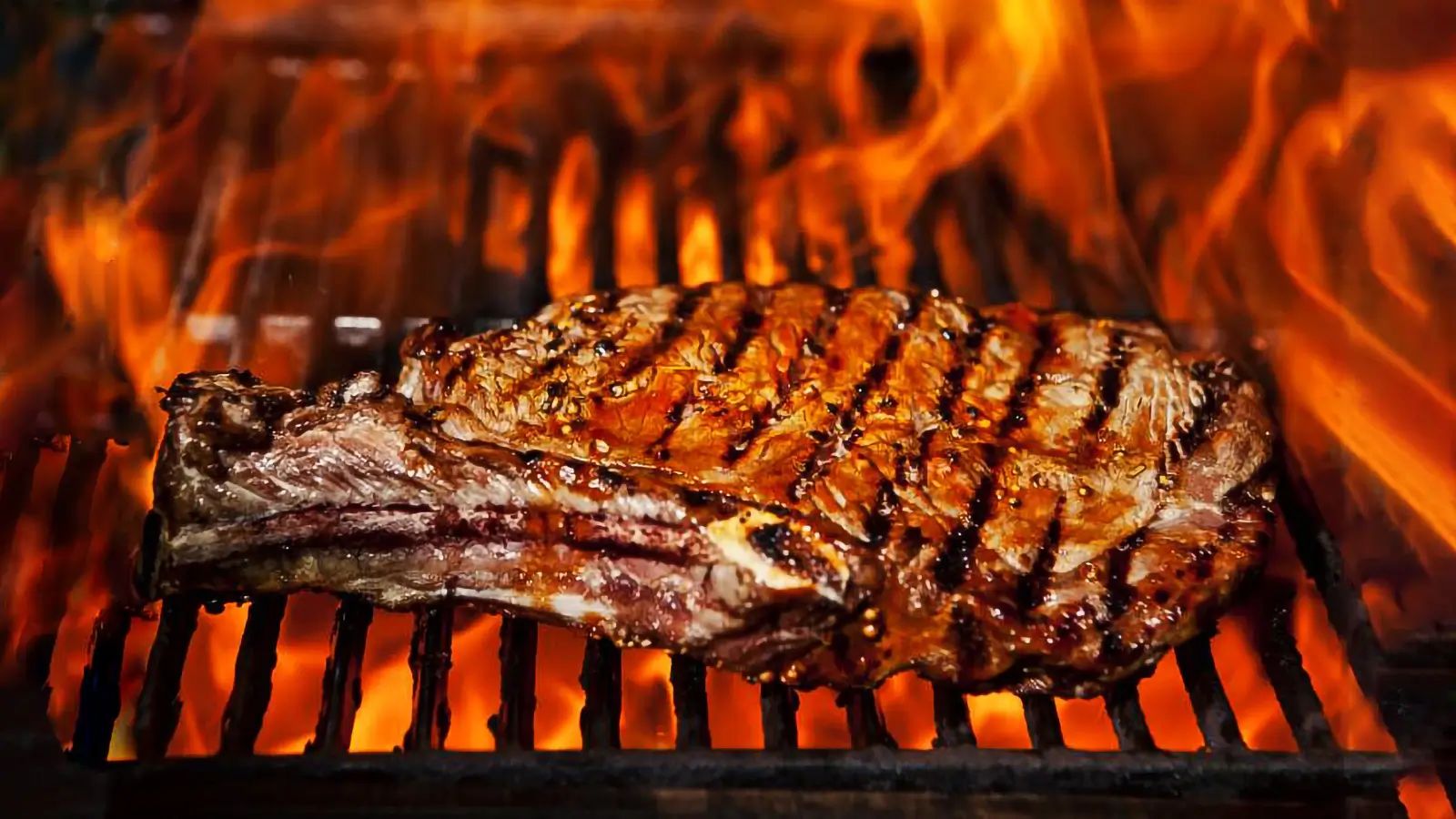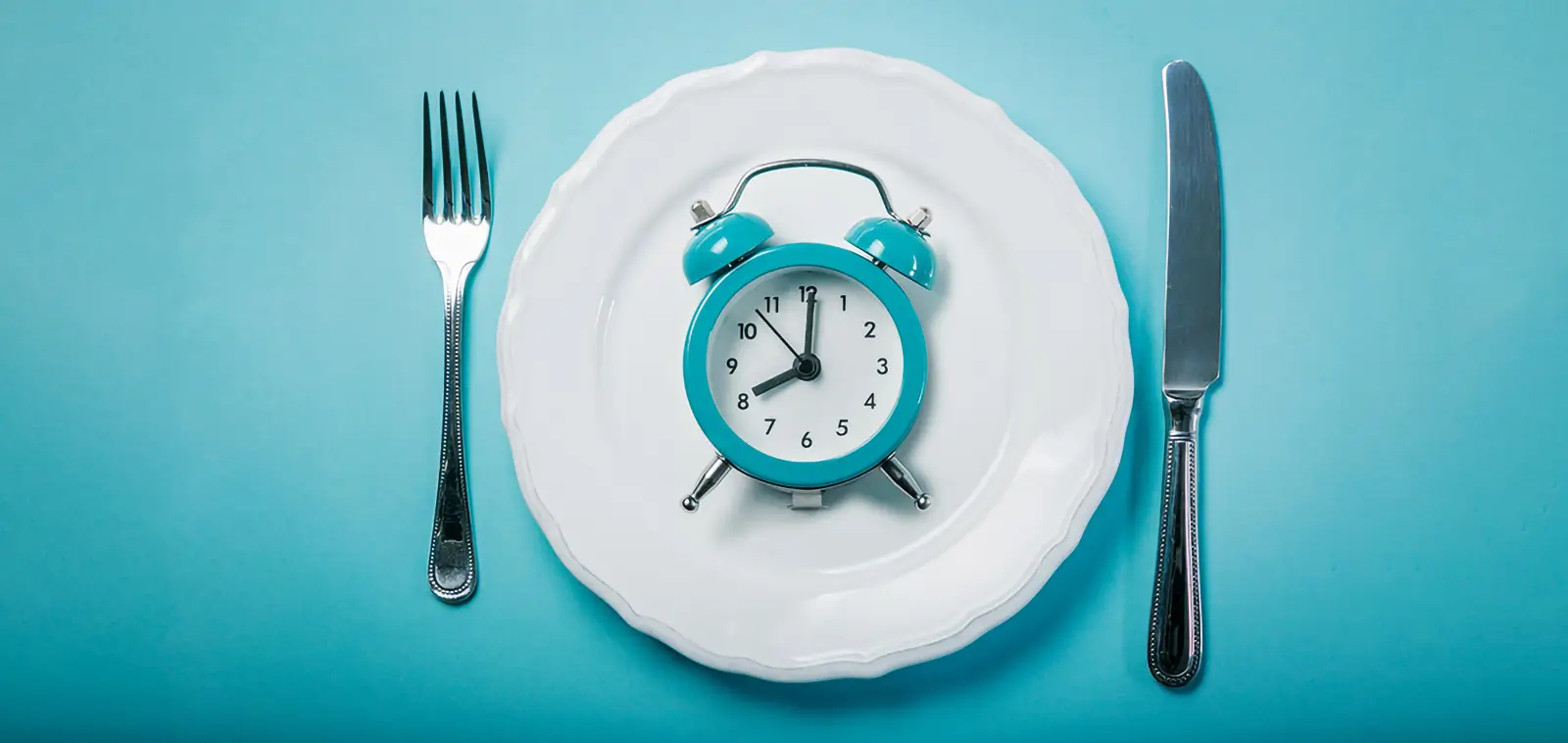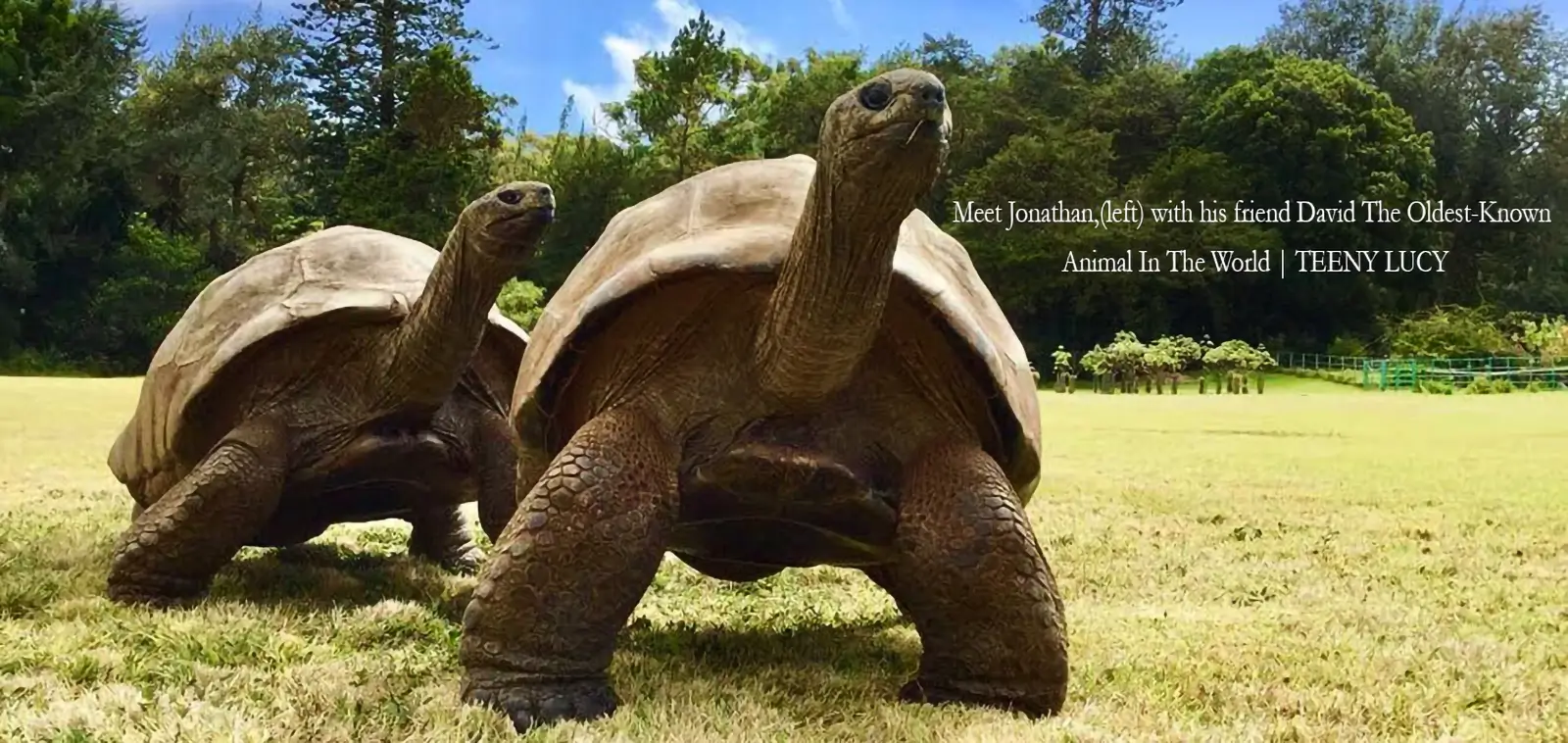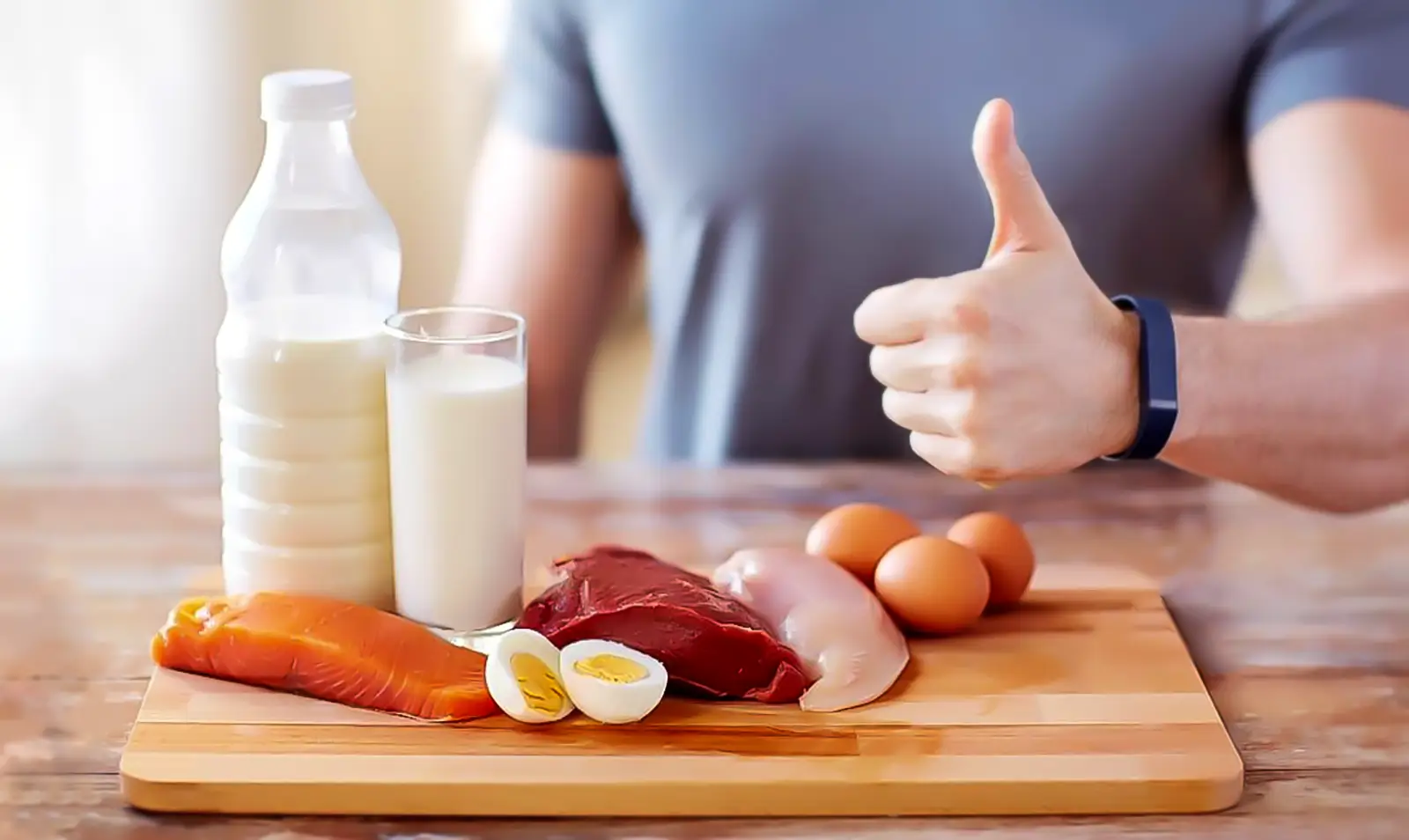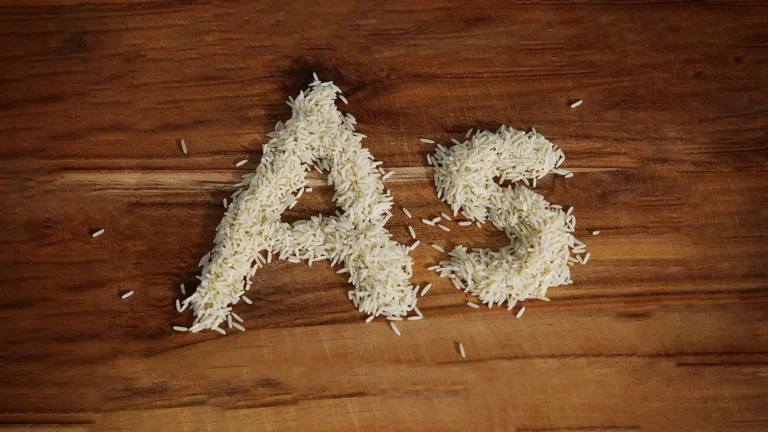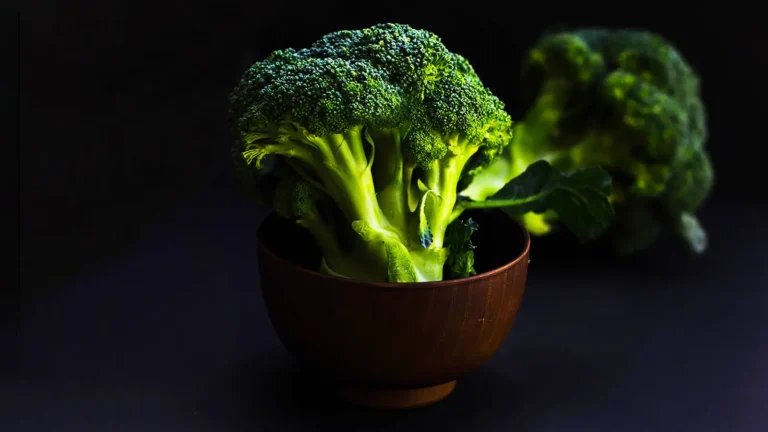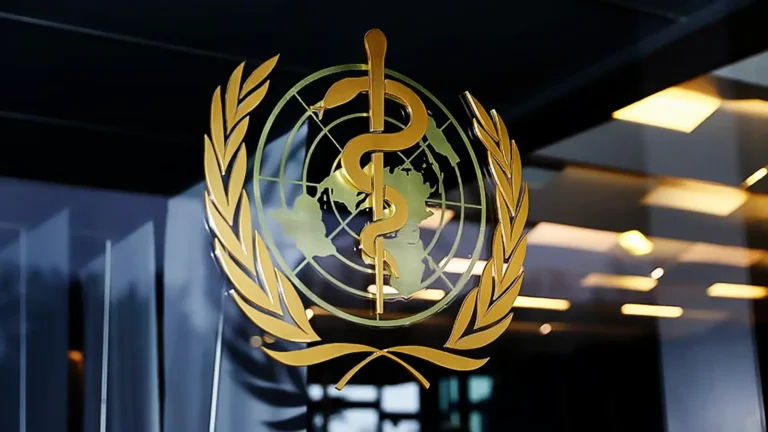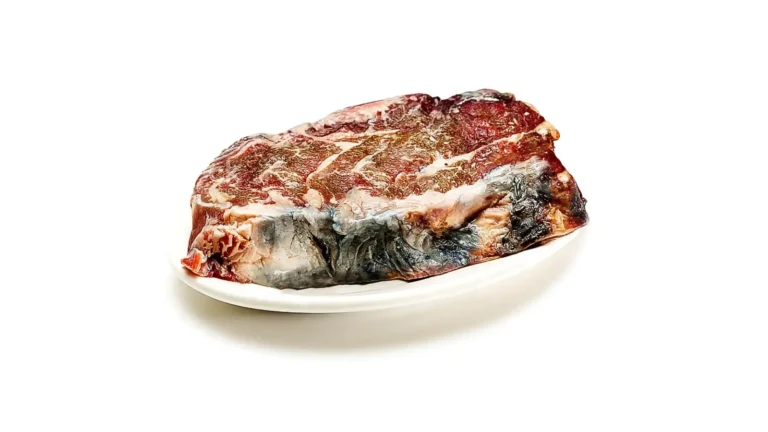Restrição de calorias, Autofagia, a Longevidade e a perda de massa Muscular
Todos nós queremos uma quantidade considerável de massa muscular e o metabolismo rápido, de modo que podemos comer mais, mas autofagia é o que está em linha com a biologia evolutiva.
Milos Pokimica
Escrito por: Milos Pokimica
Revisto Clinicamente Por: Dr. Xiùying Wáng, M.D.
Actualizado em 9 de Junho de 2023Queremos ter massa muscular tanto quanto possível e um metabolismo rápido tanto quanto possível para podermos comer mais e não ganharmos peso, mas a biologia evolutiva dir-nos-á novamente o que é saudável e não é comer constantemente em excesso. Os animais na natureza têm dificuldade em encontrar comida, pelo que um nível básico de existência é um aumento do nível de autofagia com jejum intermitente e restrição calórica. Vou utilizar uma citação do sítio Web do Instituto Nacional do Envelhecimento do Departamento de Saúde e Serviços Humanos dos EUA: Fernández-Ruiz, 2017, Na palavra grega antiga, "phagy" significa comer e a palavra "auto" significa "eu", pelo que autofagia significa auto-alimentação literária. Todos os dias nos comemos a nós próprios. Quando qualquer célula do nosso corpo morre, ela não vai para o lixo. O que acontece é uma reciclagem. A autofagia é um método fisiológico completamente natural no corpo que lida com a destruição das células. Controla a homeostasia ou o funcionamento regular através da degradação e destruição de proteínas e da rotação dos organelos celulares destruídos para a formação de novas células. Durante o stress celular (privação de nutrientes), o processo de autofagia é aumentado: "Ei, vamos cultivar coisas, agora temos todos os aminoácidos essenciais.",Denduluri et al., 2015,Cava et al., 2017,Fernández-Ruiz I. (2017). Metabolismo: Restrição calórica para um envelhecimento saudável.",Cava, E., Yeat, N. C., & Mittendorfer, B. (2017). Preservando músculos saudáveis durante a perda de peso.,Welton, S., Minty, R., O'Driscoll, T., Willms, H., Poirier, D., Madden, S., & Kelly, L. (2020). Jejum intermitente e perda de peso: Revisão sistemática, (2), 117-125, Zouhal, H., Saeidi, A., Salhi, A., Li, H., Essop, M. F., Laher, I., Rhibi, F., Amani-Shalamzari, S., & Ben Abderrahman, A. (2020). Treino de exercício e jejum: Current Insights.,, 1-28.,Denduluri, S. K., Idowu, O., Wang, Z., Liao, Z., Yan, Z., Mohammed, M. K., Ye, J., Wei, Q., Wang, J., Zhao, L., & Luu, H. H. (2015). Insulin-like growth fator (IGF) signaling in tumorigenesis and the development of cancer drug resistance.,(1), 13-25.,Calorie restriction, Autophagy, Longevity, and Muscle loss 33,Calorie restriction, Autophagy, Longevity, and Muscle loss 34,Glycogen depletion- How not to exercise 24,Inflammation and diet- Vegan argument 27,Intermittent Fasting vs Calorie Restriction- Is there a difference? 28,Longevidade: A teoria da taxa de vida 29,Compreender os valores ORAC: Níveis de Antioxidantes nos Alimentos 35,Deficiência de Micronutrientes na Dieta Americana Padrão: Estratégias de otimização 40,Dieta de alimentos crus - A perspetiva evolutiva 41,Açúcar refinado: Compreender os riscos 42
"Desde a década de 1930, os investigadores descobriram consistentemente que os ratos e ratos de laboratório vivem até 40 por cento mais tempo do que o habitual e também parecem ser mais resistentes a doenças relacionadas com a idade quando alimentados com uma dieta que tem pelo menos 30 por cento menos calorias do que normalmente consumiriam. Agora os investigadores estão a explorar se e como a restrição calórica irá afectar o envelhecimento em macacos e outros primatas não humanos".
Actualmente, dispomos de um grande número de estudos em seres humanos (Fernández-Ruiz, 2017). A resposta de restrição calórica existe em quase todas as espécies testadas até à data e provavelmente evoluiu muito cedo na história da vida na Terra como um mecanismo para aumentar as hipóteses de sobreviver a carências periódicas. Existe uma diferença entre o jejum e a restrição calórica prolongada, mas o mecanismo subjacente é o mesmo, e a restrição calórica prolongará a esperança de vida muito mais do que o jejum periódico, embora mesmo o jejum periódico tenha efeitos benéficos na longevidade.
Os benefícios provêm de duas razões principais. Existem outros benefícios, como por exemplo:
- melhor sensibilidade insulínica
- regulação das condições inflamatórias no corpo
- formação de células cancerosas a morrer de fome
- desintoxicante
- melhorar os padrões alimentares
- equilíbrio hormonal.
No entanto, há duas razões principais a nível celular que sublinham todos os outros benefícios que brotam destes dois.
Em primeiro lugar, quando os níveis sanguíneos de insulina baixam significativamente, e os níveis sanguíneos de hormona de crescimento podem aumentar até 5 vezes. A insulina e a hormona de crescimento desempenham papéis antagónicos uns contra os outros. Quando uma é elevada, a outra será baixa. Quando vamos dormir, jejuamos durante 10 horas, a insulina cai e a HGH (hormona de crescimento humano) sobe. Quando a HGH sobe, crescemos, especialmente se estivermos na puberdade. HGH estimula o crescimento, reprodução celular e regeneração celular. É, portanto, essencial no desenvolvimento humano.
Em segundo lugar, quando aceleramos as nossas células, iniciamos importantes processos de reparação celular e mudança nos genes que elas exprimem. Começamos a regenerar e a permitir a limpeza e desintoxicação do corpo. Uma das razões pelas quais as pessoas doentes têm um baixo apetite é que existem no processo de regeneração intensiva. Em termos médicos, essa regeneração é chamada de autofagia.
In the ancient Greek word, “phagy” means eating and the word “auto” means self, so autophagy means literary self-eating. You self-eat yourself every day. When any cell in our body dies, it will not go to waste. What happens is recycling. Autophagy is a completely natural physiological method in the body that deals with the destruction of cells. It controls homeostasis or regular functioning by protein degradation and destruction and turnover of the destroyed cell organelles for new cell formation. During cellular stress (deprivation of nutrients) the process of autophagy is increased.
A autofagia também tem a capacidade de destruir as células sob certas condições. Há uma forma de morte celular programada e há a morte celular induzida por autofagia. Dois tipos diferentes. A morte celular programada é normalmente denominada apoptose. Autofagia é denominada como morte celular programada não apoptótica com diferentes vias e mediadores da apoptose. Além disso, esta é a chave para a restrição calórica e o jejum. Se a célula for pré-cancerosa, por exemplo, ou danificada ou mutada de alguma forma, a morte da célula autofágica ajudará o nosso corpo a limpar-se a si próprio.
Após o esgotamento do glicogénio, entraremos em autofagia crescente, e o nosso corpo apoiar-se-á fortemente em aminoácidos e catabolismo proteico para a criação de energia. Os aminoácidos serão utilizados, e parte da massa muscular será perdida.
Além disso, é uma coisa boa.
O nosso organismo é muito mais inteligente do que pensamos. O nosso coração também é o músculo, mas não seria tocado. Primeiro vai o glicogénio, depois a gordura, depois o músculo, depois os órgãos vitais, e depois morremos de subnutrição. É um plano brilhante para sustentar a vida através da fome. Se existe uma célula "má" e uma célula "boa" e algumas das células precisam de "ir" buscar energia, primeiro na linha está a célula má. Os primeiros em linha a serem eliminados são as partes do sistema que podem estar danificadas ou velhas. As partes ineficientes. Acredita-se que a ausência de autofagia é uma das principais razões para a acumulação de células danificadas, e isto pode levar a sérias complicações de saúde. Se começarmos a ser severamente danificados pela quimioterapia ou outras toxinas, os ciclos de jejum podem gerar, literalmente, um sistema imunitário inteiramente novo.
O exercício por si só é capaz de aumentar a autofagia, numa situação em que a autofagia já acontece. Quanto mais intensivo for o exercício, tanto mais eficaz será. No entanto, se comermos e fizermos o exercício sozinho, não será benéfico.
A forma mais rápida de desligar a autofagia é comer grandes quantidades de proteína completa. O que isto fará é estimular o IGF-1 (factor de crescimento semelhante à insulina 1) e o mTOR (rapamicina), que são potentes inibidores da autofagia. O IGF-1 (factor de crescimento da insulina) é de certa forma responsável pelo crescimento muscular. No entanto, o efeito secundário catastrófico do IGF-1 é o cancro. É melhor limitar a proteína a cerca de 50 a 70 gramas por dia, dependendo da massa corporal magra. Quando ingerimos grandes quantidades de proteína, o nosso fígado detecta-a, e a resposta é:
”Hey let’s grow stuff, we have all essential amino acids now.”
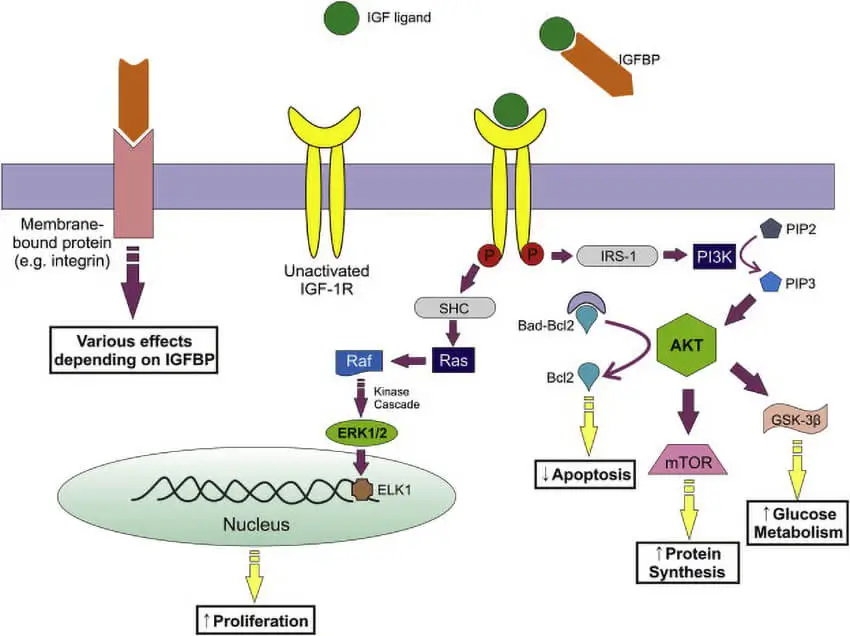
Começa a bombear o IGF-1. No estado de jejum, a ligação do GH (hormona de crescimento) é diminuída, de modo que mais GH é deixado na corrente sanguínea. Na restrição proteica, os receptores GH são mantidos, mas não para o IGF-1.
Para evitar a perda de músculo durante a restrição calórica e a dieta e para aumentar os benefícios da restrição calórica, o caminho a seguir é fazer um treino de resistência moderado. Isto não evitará a perda de músculo, mas será benéfico até certo ponto (Cava et al., 2017).
Outra forma é evitar alimentos não vegetarianos ou, por outras palavras, fontes de proteína "completa" em grandes quantidades.
Quando ingerimos uma fonte de proteína incompleta, o que significa que lhe faltam alguns dos aminoácidos essenciais, a libertação de IGF-1 não será sinalizada ao mesmo nível. Não se trata apenas da quantidade total de proteína consumida, mas também da fonte (Allen et al., 2002).
Se for vegano e comer fontes completas de proteínas como a soja, irá negar o benefício. É por causa do perfil proteico. Por exemplo, os veganos que comem 7 a 18 porções de refeições de soja por dia podem acabar com níveis de IGF-1 circulantes que são relativos aos que comem carne. Isto deve-se ao facto de a soja ter proteína completa. Algumas outras plantas também têm proteínas de alta qualidade. O elevado nível de consumo de proteínas na dieta tem outros efeitos negativos, independentemente disso. Também se o seu único objectivo é evitar a perda de massa muscular durante a dieta e não estiver interessado na longevidade, vai querer aumentar a sua ingestão de proteínas.
A boa notícia é que podemos usar a autofagia para limpar a nossa base genética, a má notícia é que já não o fazemos. No passado, a natureza obrigou-nos por não fornecermos recursos suficientes. Hoje comemos regularmente e mesmo que passemos fome, isso não vai durar o suficiente para esgotar os nossos armazéns de glicogénio.
Referências:
- Fernández-Ruiz I. (2017). Metabolism: Calorie restriction for healthy ageing. Revisões da Nature. Cardiologia, 14(4), 190. https://doi.org/10.1038/nrcardio.2017.26
- Cava, E., Yeat, N. C., & Mittendorfer, B. (2017). Preserving Healthy Muscle during Weight Loss. Avanços em Nutrição, 8(3), 511-519. https://doi.org/10.3945/an.116.014506
- Allen, N. E., Appleby, P. N., Davey, G. K., Kaaks, R., Rinaldi, S., & Key, T. J. (2002). The associations of diet with serum insulin-like growth fator I and its main binding proteins in 292 women meat-eaters, vegetarians, and vegans. Epidemiologia, biomarcadores e prevenção do cancro: uma publicação da Associação Americana para a Investigação do Cancro, co-patrocinada pela Sociedade Americana de Oncologia Preventiva, 11(11), 1441-1448.[PubMed]
- Welton, S., Minty, R., O’Driscoll, T., Willms, H., Poirier, D., Madden, S., & Kelly, L. (2020). Intermittent fasting and weight loss: Systematic review. Médico de família canadiano Medecin de famille canadien, 66(2), 117–125.[PubMed]
- Zouhal, H., Saeidi, A., Salhi, A., Li, H., Essop, M. F., Laher, I., Rhibi, F., Amani-Shalamzari, S., & Ben Abderrahman, A. (2020). Exercise Training and Fasting: Current Insights. Revista de acesso aberto de medicina desportiva, 11, 1–28. https://doi.org/10.2147/OAJSM.S224919
- Denduluri, S. K., Idowu, O., Wang, Z., Liao, Z., Yan, Z., Mohammed, M. K., Ye, J., Wei, Q., Wang, J., Zhao, L., & Luu, H. H. (2015). Insulin-like growth factor (IGF) signaling in tumorigenesis and the development of cancer drug resistance. Genes e doenças, 2(1), 13–25. https://doi.org/10.1016/j.gendis.2014.10.004
Publicações Relacionadas
Você tem alguma dúvida sobre saúde e nutrição?
Eu adoraria ouvir de você e respondê-las em meu próximo post. Agradeço sua contribuição e opinião e espero ouvir de você em breve. Eu também convido você a siga-nos no Facebook, Instagram e Pinterest para mais conteúdos sobre dieta, nutrição e saúde. Pode deixar um comentário e ligar-se a outros entusiastas da saúde, partilhar as suas dicas e experiências e obter apoio e encorajamento da nossa equipa e comunidade.
Espero que este post tenha sido informativo e agradável para si e que esteja preparado para aplicar os conhecimentos que aprendeu. Se achou este post útil, por favor partilhá-lo com os seus amigos e familiares que também possam beneficiar com isso. Nunca se sabe quem poderá precisar de alguma orientação e apoio no seu percurso de saúde.
– Você Também Pode Gostar –

Aprender Sobre Nutrição
Milos Pokimica é médico de medicina natural, nutricionista clínico, escritor de saúde e nutrição médica, e conselheiro em ciências nutricionais. Autor da série de livros Go Vegan? Revisão de Ciênciaopera também o website de saúde natural GoVeganWay.com
Medical Disclaimer
GoVeganWay.com traz análises das pesquisas mais recentes sobre nutrição e saúde. As informações fornecidas representam a opinião pessoal do autor e não pretendem nem implicam substituir aconselhamento, diagnóstico ou tratamento médico profissional. As informações fornecidas são apenas para fins informativos e não se destinam a servir como substituto para consulta, diagnóstico e/ou tratamento médico de um médico ou profissional de saúde qualificado.NUNCA DESCONSIDERE o CONSELHO MÉDICO PROFISSIONAL OU adiar a BUSCA de TRATAMENTO MÉDICO por causa DE ALGO QUE TENHA LIDO OU ACESSADO por MEIO de GoVeganWay.com
NUNCA APLIQUE QUAISQUER MUDANÇAS de estilo de VIDA OU QUALQUER MUDANÇA COMO UMA CONSEQUÊNCIA DE ALGO QUE TENHA LIDO NO GoVeganWay.com ANTES de CONSULTORIA de LICENÇA MÉDICA.
No caso de uma emergência médica, ligue para o médico ou para o 911 imediatamente. GoVeganWay.com não recomenda ou endossa qualquer específicos, grupos, organizações, exames, médicos, produtos, procedimentos, opiniões ou outras informações que podem ser mencionadas dentro.
Sugestões do Editor –
Milos Pokimica é escritor especializado em saúde e nutrição e consultor em ciências nutricionais. Autor da série de livros Go Vegan? Revisão de Ciênciaopera também o website de saúde natural GoVeganWay.com
Artigos Mais Recentes -
Superior De Saúde De Notícias — ScienceDaily
- Study finds vegetarians over 80 less likely to reach 100on Fevereiro 26, 2026
Avoiding meat might slightly lower the odds of reaching 100 — but only for frail, underweight seniors. In very old age, staying strong and maintaining muscle matters more than long-term disease prevention. Older adults who included fish, eggs, or dairy were just as likely to become centenarians as meat eaters, suggesting that key nutrients may make the difference. The takeaway: nutrition needs change dramatically with age.
- Shingles vaccine may slow biological aging and reduce inflammationon Fevereiro 26, 2026
A shingles shot might do more than prevent a painful rash — it could actually help slow down the aging process. In a large national study of more than 3,800 Americans age 70 and older, those who received the shingles vaccine showed slower biological aging compared to those who didn’t. Researchers found lower levels of chronic inflammation and slower changes in gene activity linked to aging, suggesting the vaccine may calm the body’s “inflammaging” — the low-grade inflammation tied […]
- Massive review suggests exercise may do little for osteoarthritis painon Fevereiro 26, 2026
A sweeping new analysis of the evidence suggests that exercise therapy — long promoted as a first-line treatment for osteoarthritis — may offer only small and short-lived relief, and in some cases might be no better than doing nothing at all. After reviewing dozens of clinical trials involving more than 13,000 participants, researchers found that benefits for knee osteoarthritis pain were minimal and tended to shrink in larger or longer-term studies.
- Just two days of oatmeal cut bad cholesterol by 10%on Fevereiro 25, 2026
Eating nothing but oatmeal for just two days might sound extreme, but it delivered a striking payoff in a new clinical trial. People with metabolic syndrome who followed a short, calorie-reduced oat-based plan saw their harmful LDL cholesterol drop by 10%, along with modest weight loss and lower blood pressure. Even more surprising, the cholesterol benefits were still visible six weeks later.
- New drug target discovered for devastating “brain on fire” diseaseon Fevereiro 25, 2026
Scientists have zeroed in on a critical weak spot behind a rare but devastating brain autoimmune disorder often known as “Brain on Fire.” The disease strikes when the immune system attacks NMDA receptors—key molecules involved in memory and thinking—leading to psychiatric symptoms, seizures, and even death.
- Scientists discover hidden sugar layer behind psoriasison Fevereiro 25, 2026
A gel-like sugar coating on immune cells has been found to play a starring role in psoriasis. Researchers discovered that immune cells shed this outer layer to help them exit the bloodstream and enter inflamed skin. This challenges the long-held idea that only blood vessel walls changed during this process. The finding could help guide new therapies aimed at controlling harmful inflammation.
- New brain stimulation approach could treat depression in just 5 dayson Fevereiro 25, 2026
A weeklong, high-intensity version of TMS may work nearly as well as the standard six-week treatment for depression. In a UCLA study, patients who received five sessions a day for five days experienced meaningful symptom relief comparable to those on the traditional schedule. Some who didn’t improve immediately showed strong gains weeks later. The findings hint at a faster, more accessible path to recovery.
PubMed, #vegan-dieta –
Postagens aleatórias –
Postagens em destaque –
Últimas do PubMed, #dieta baseada em vegetais –
- Differences in Protein Quantity and Quality Across a Spectrum of Plant-Based Meals: Analysis of a Large National Dietary Surveypor Sophie L van Oppenraaij on Fevereiro 24, 2026
CONCLUSIONS: This study shows that only a small proportion of Dutch adults met both protein-related recommendations and sustainability goals, due to lower protein quantity and quality in more plant-based diets. This study emphasizes the need for professional guidance, especially in individuals with higher protein requirements, to facilitate a successful transition to a more plant-based diet.
- Evaluation of biochemical, histopathological, hematological, and genotoxic effects of some indigenous weed plant extracts in albino rats toward a natural and safe alternative to synthetic insecticidespor Muhammad Asif Zahoor on Fevereiro 23, 2026
CONCLUSION: These findings suggest that these weed plants have the potential to be used as biopesticides for future integrated pest management (IPM) programs.
- Comparative life cycle assessment of conventional dairy products and plant-based analog and hybrid alternatives: current status and future perspectivespor Muhammed Fidan on Fevereiro 23, 2026
Conventional dairy products are associated with relatively high environmental burdens, largely driven by farm-level processes such as enteric methane emissions, feed production, and land use. These concerns have intensified interest in plant-based analog and hybrid dairy products as potential alternatives. However, environmental comparisons among these product categories remain inconsistent due to differences in functional units, methodological choices, and nutritional characteristics. This…
- Dietary Patterns and Indicators of Cognitive Functionpor Hui Chen on Fevereiro 23, 2026
CONCLUSIONS AND RELEVANCE: Results reveal that healthy diets, exemplified by the DASH diet for blood pressure control and diets with lower hyperinsulinemia and inflammation potentials, were associated with a lower SCD risk and better cognitive function. These findings underscore the importance of a healthy diet for maintaining long-term cognitive health.
- Adherence to the EAT-Lancet Planetary Health Diet during Pregnancy and Associations with Preterm Birth and Infant Size: a prospective analysis from the New Hampshire Birth Cohortpor Leyre Notario Barandiaran on Fevereiro 21, 2026
CONCLUSION: Originally proposed for chronic disease prevention and planetary sustainability, higher adherence to the PHD during pregnancy may also benefit birth outcomes, particularly lower odds of preterm birth.
- Inflammatory potential of the diet and self-rated quality of life in Italian adultspor Francesca Giampieri on Fevereiro 20, 2026
CONCLUSION: The findings suggest an association between the inflammatory potential of the diet and QoL.
